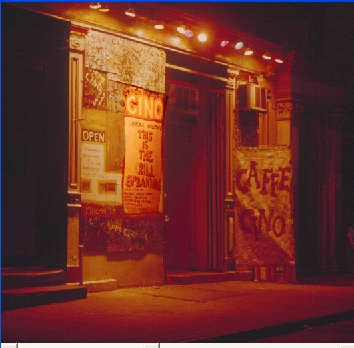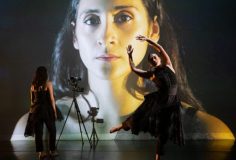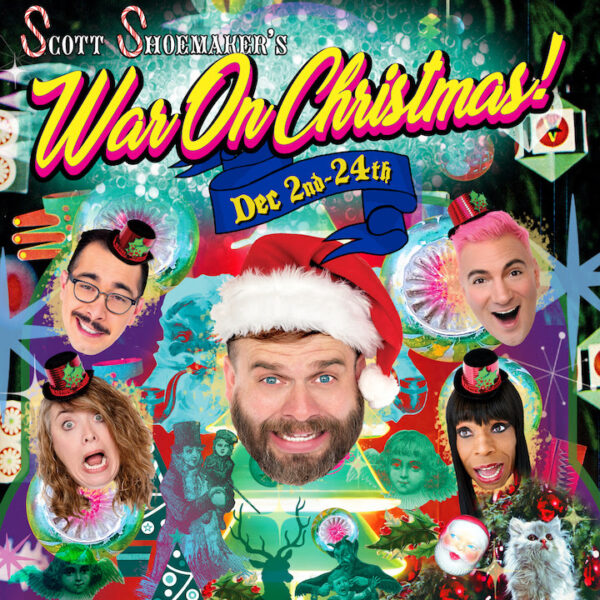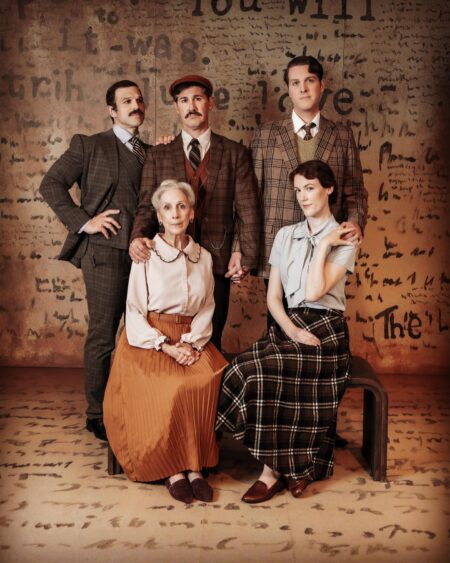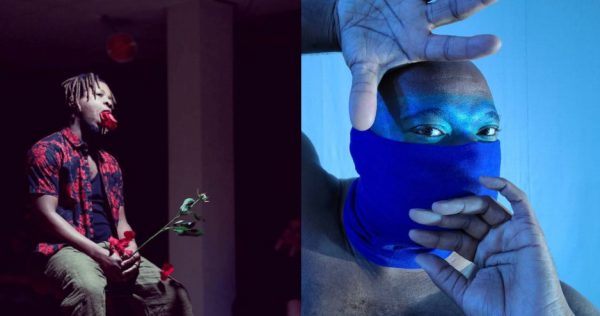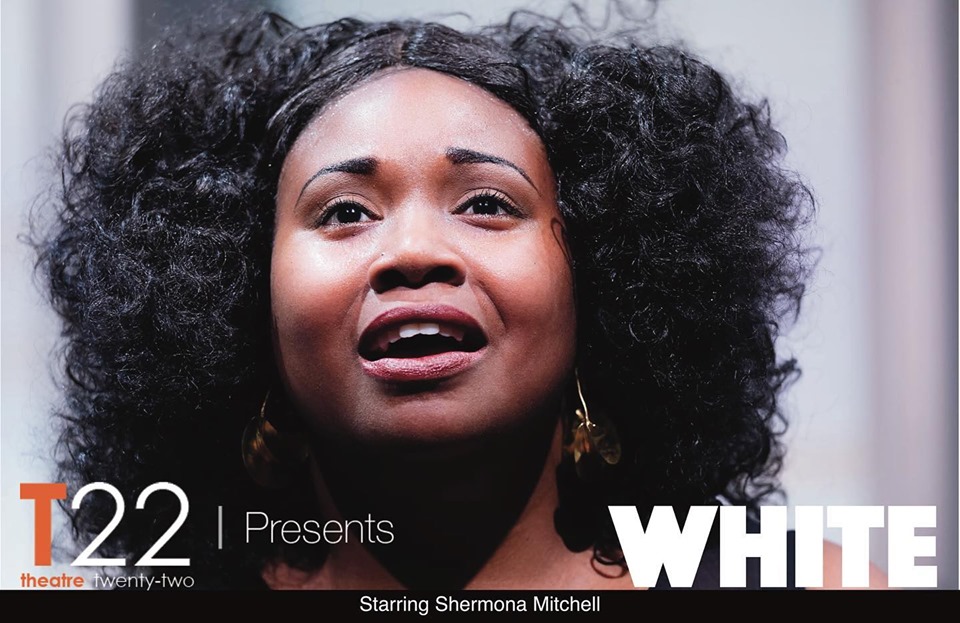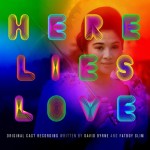Greenwich Village was Bohemian Central in the 50s & 60s. The outcasts and non-conformists gathered there – artists, writers, poets and many others who found a place to call home. At the age of 16 Joe Cino ran away from his home in Buffalo to go to New York City. He studied performing arts and eventually made a living as a dancer. Then, according to playwright Robert Patrick, “he got fat and had to find something different.” That something different turned out to be the small café for friends he began in 1958 – Caffé Cino. “A boy named Billy Mitchell suggested that instead of just the usual music and poetry, Joe should try doing live plays”, recalls Patrick, and that was how Off-Off Broadway was born. Voices that might not have otherwise been heard, plays that were creative, raw, exciting and at times very gay at a time when very few things were thought to be. Many creative lives passed through the years of Cino; Doric Wilson, Pulitzer Prize winner Lanford Wilson, Harvey Keitel, Al Pacino, Bernadette Peters to name only a few.
For three nights in March, a former medical marijuana dispensary in Seattle’s University District will transform into a makeshift theatre café. Inspired by Joe Cino’s legendary Greenwich Village performance space, Caffé Cino, the space will house performances of six short plays from the early days of Off Off Broadway. Cino Nights will be under the direction of Daniel Talbott.
After meeting legendary gay playwright, Doric Wilson at the New York Innovative Theater Awards where Talbott’s company Rising Phoenix Repertory had been presented with the 2007 Caffé Cino Fellowship Award, Talbott’s interest was whetted and Cino Nights was born in New York City.
“I love small theater, scrappy theater, dangerous and kind of intimate theater where people make something out of nothing. That represents the Caffe Cino” says Talbott. He is excited to be bringing Cino Nights to Seattle.
Saturday, March 4th will bring Lanford Wilson’s play “The Madness of Lady Bright”, first presented at Caffé Cino in 1964, along with a talk by Robert Patrick. Later evenings will have work by William Hoffman, Maria Irene Fornes, Adrienne Kennedy, Megan Terry and Robert Patrick.
Says Talbott, “The way we work on plays – I am only there for three weeks and each week we do an entirely new selection of plays so you only get five days to fully stage, rehearse and to put it together. These are drama students, probably the first time they’ve ever had to rehearse, memorize, fully stage and embody an entire play literally in five days…what they are doing is kind of a beautiful impossible feat, which kind of embodies what theater is – the great impossible feat.”
Robert Patrick found his way to Caffé Cino 30 minutes after arriving in New York City in the early 60s. He went on to not only become a regular in the cafe where Joe Cino would begin each play by ringing bells and chimes and saying “It’s Magic Time!”, but also began writing himself. Patrick became one of the earliest openly gay playwrights to be writing about gay themes. In addition to plays, Patrick has written poems, short stories, novels and reviews of gay porn. His work includes “The Haunted Host”, “Kennedy’s Children”, “T-Shirts” and “Blue Is For Boys”. He now lives in Los Angeles, and in 2010 he published a DVD lecture “Caffe Cino: Birthplace of Gay Theater”. I had the pleasure of having a conversation with him recently, as he was preparing to come to Seattle for Cino Nights.
SGS: What was your introduction to Caffé Cino?
RP: I’d been with my family in New Mexico, but I got a job in Summer Stock theater in Maine. At the end of the run, I got a ride from Maine to New York where I was going to get the bus back to New Mexico. I decided to stay for a day to see Greenwich Village. I followed a beautiful boy with long hair down a one block long side street in the Village. I followed him into Caffé Cino…the first Off Off Broadway theater and the first gay theater. So 30 minutes after hitting Manhattan I am in the palace of my dreams. I stayed and worked for three years there for free and got an idea for a play which I wrote and took it to Joe Cino. He threw it in the garbage and said ‘You don’t want to be a playwright, Bob. Playwrights are terrible people!’ But Lanford Wilson, who later won a Pulitzer Prize, was the star playwright of the Cino and he told Joe that if he didn’t do my play that he, Lanford, wouldn’t do any more plays there. Joe said ‘Oh alright but you’ll be sorry.’ Lanford was my roommate and had read the play and knew it was good.
My first play was The Haunted Host in 1964. We didn’t set out to consciously create gay theater. It was just that the Cino was so free. It was the first theater in the history of the world where you didn’t have to worry about if the press or public or police were going to like your play so you could write whatever was on your mind and gay life was on some of our minds. I wouldn’t want anyone to think that we consciously set out to make a revolution. We just were part of one.
SGS: This all took place just prior to what we think of as the modern gay movement, the time of the Stonewall Uprisings. Do you remember your awareness of being a gay person?
RP:I was very lucky. I was born in 1937 so I was teenager in 50s and lived in the Southwest. It is hard for some young people to realize how completely repressed not just being gay was but sex in general. The times were so sexually repressive that no one ever took me aside and said ‘You mustn’t be gay. It is bad.’ because that would have required talking about it and it was too horrible to talk about. I was a reader and in books which the libraries didn’t even know they had, books by folks like Sappho and Homer, I learned that there had always been gay people so when I began to have my feelings I knew what they were and I skipped the worst part of being gay in those days. But I was actually determined once I got away from New Mexico that nothing was ever going to oppress me again. It wasn’t just sex that was forbidden…it was thinking. I was as excited by the fact the people at the Cino had free thought and weren’t afraid to have original and unusual ideas as I was by the sexual and artistic freedom.
SGS: It was a very different time. Is there anything else about that time that you think younger people today might not know.
RP: It wasn’t just doing anything gay. It was being gay. We were illegal even to exist. It could not be admitted that one was gay. At a school I went to in Tennessee a boy made a pass at another one and was so horrified when he was refused and the other boy started to tell people that he tried to flag down a train to run away. Waving a bed sheet on the railway tracks because he couldn’t face the next day.
There was an air force base near town. The gay boys would get together with the men from there at the late night movies, gas stations and places you could hang around and make friends, but you didn’t dare cluster. There were no gay friends or gay world, you tried everything possible to avoid other gays. Someone once said “While the other minorities were fighting to get out of their ghettos, gays were fighting for the right to have one”.
Cops could come into a place like Stonewall anytime they wanted and bust or beat up anybody who was there. We were beyond the law – we were so illegal. Not just illegal…we were immoral. Some politicians are trying to make things work by morality again.
SGS: I am glad that you found Caffe Cino. Do you recall what the audiences were like there?
RP: It was on a one block side street behind the Waverly Movie House. The first audiences were the kinds of folks who came to Greenwich Village looking for any kind of novelty. Right around the corner were a lot of places doing stand-up comedy and jazz music and show tunes and they would eventually drop into Cino and see new plays, practically for free, usually for free, about subject and forms they’d never seen in the theater. They’d come back every week to see a brand new play. By the time I got there there was a regular crowd. The Village Voice had just started covering it. One of their first reviews they spoke positively about Cino but warned the readers they may run into “fags and lesbos” there. That exact language.
The Cino wasn’t just a gay theater. Folks like Sam Shepard wrote there. Most plays weren’t gay. Probably 12 were. The playwrights wrote about politics and history and art…it was the beginning of pop art. What we all had in common was the popular art. We all had seen the same movies and heard the same radio programs and read the same magazines. It was our common culture.
In addition to being a legend of gay theater, Robert Patrick is a delightful conversationalist with a genial and joyful manner. He will be responding to more questions on Saturday, March 4th at Cino Nights. There is currently a waiting list to get in.
All performances will take place at:
Caffé Cino: U-District, 5267 University Way NE, Seattle, WA 98105
All performances are free and open to the public.
Refreshments will be available on a donation basis.
Cino Nights: https://www.uwdramalabs.com/#cino-nights


